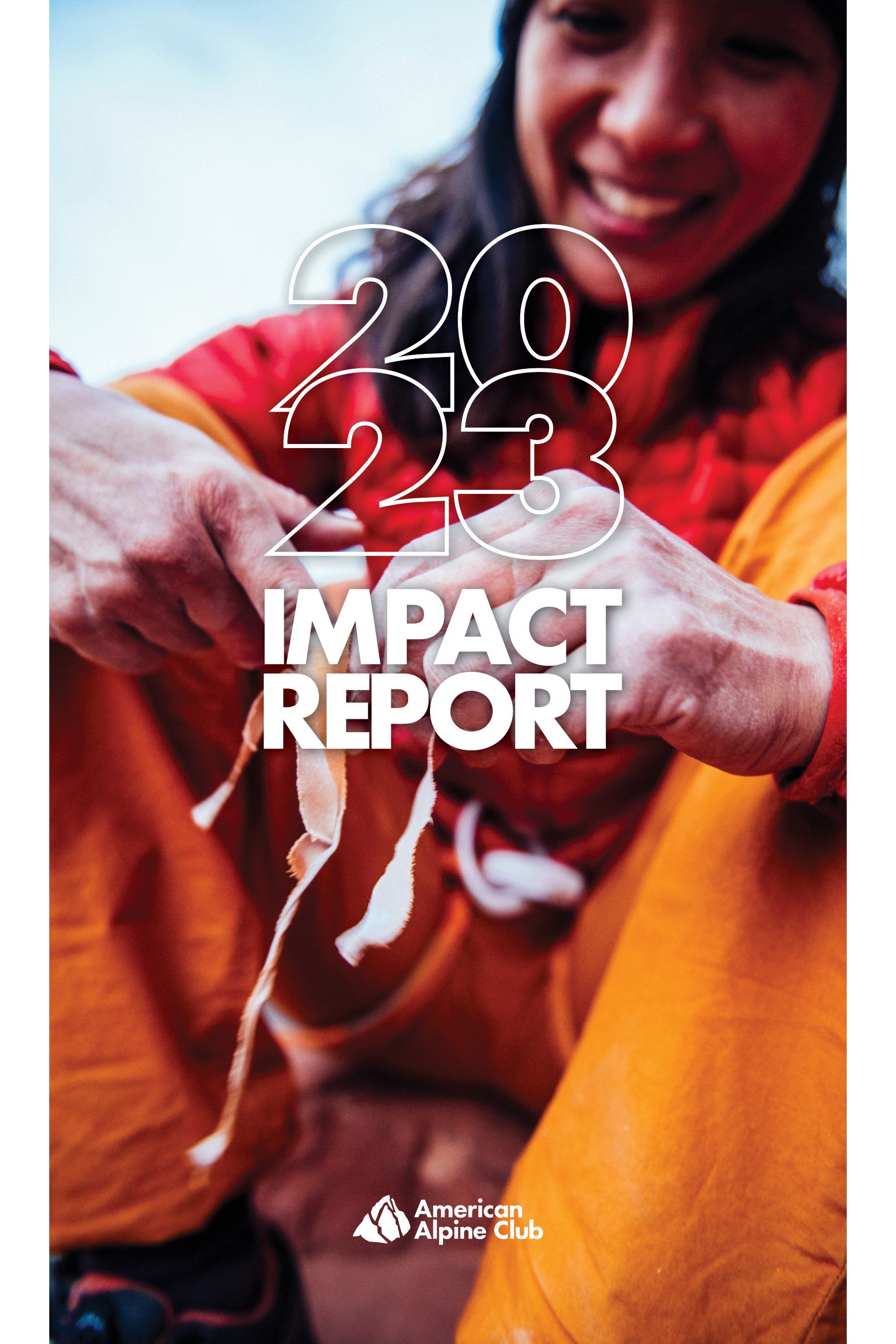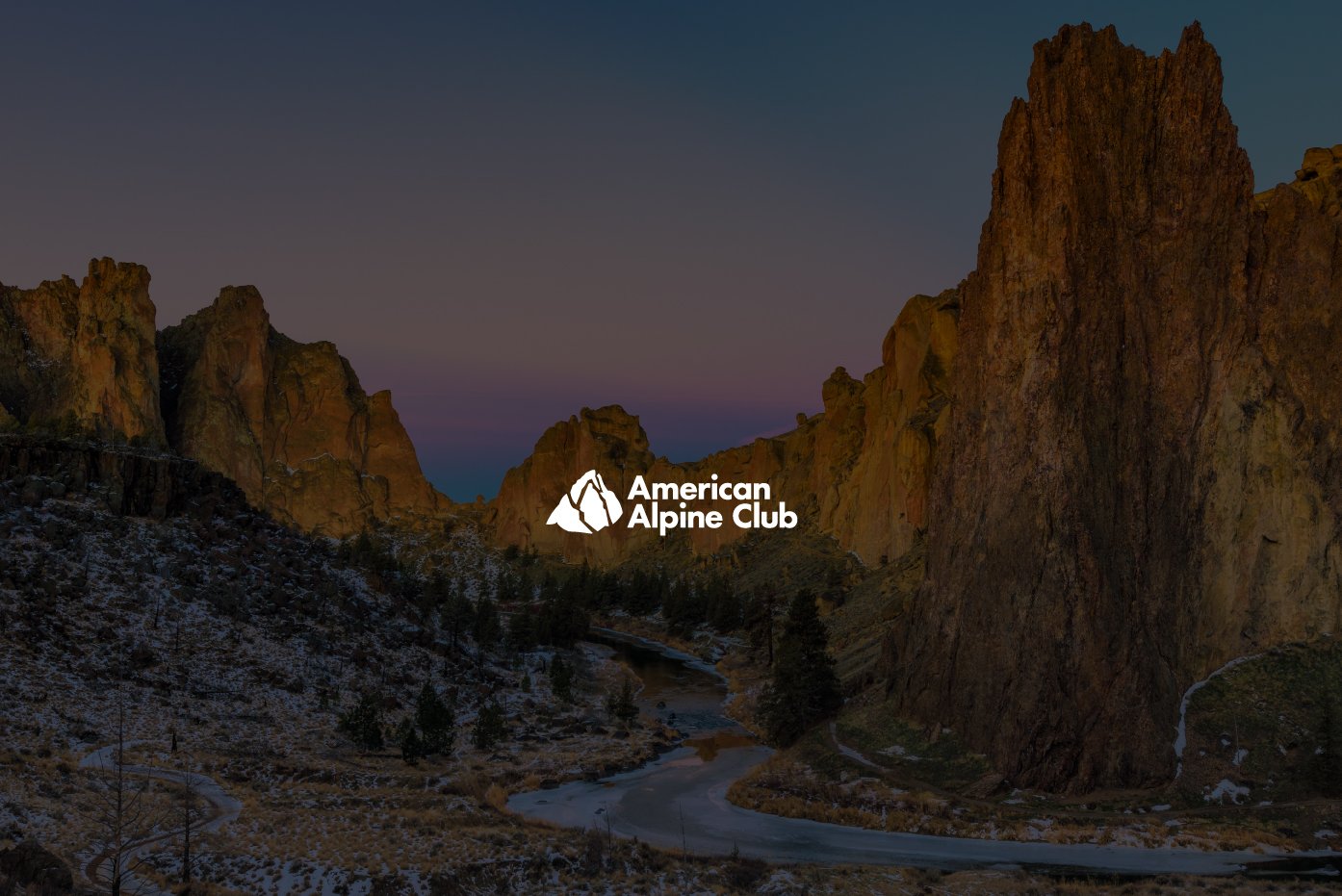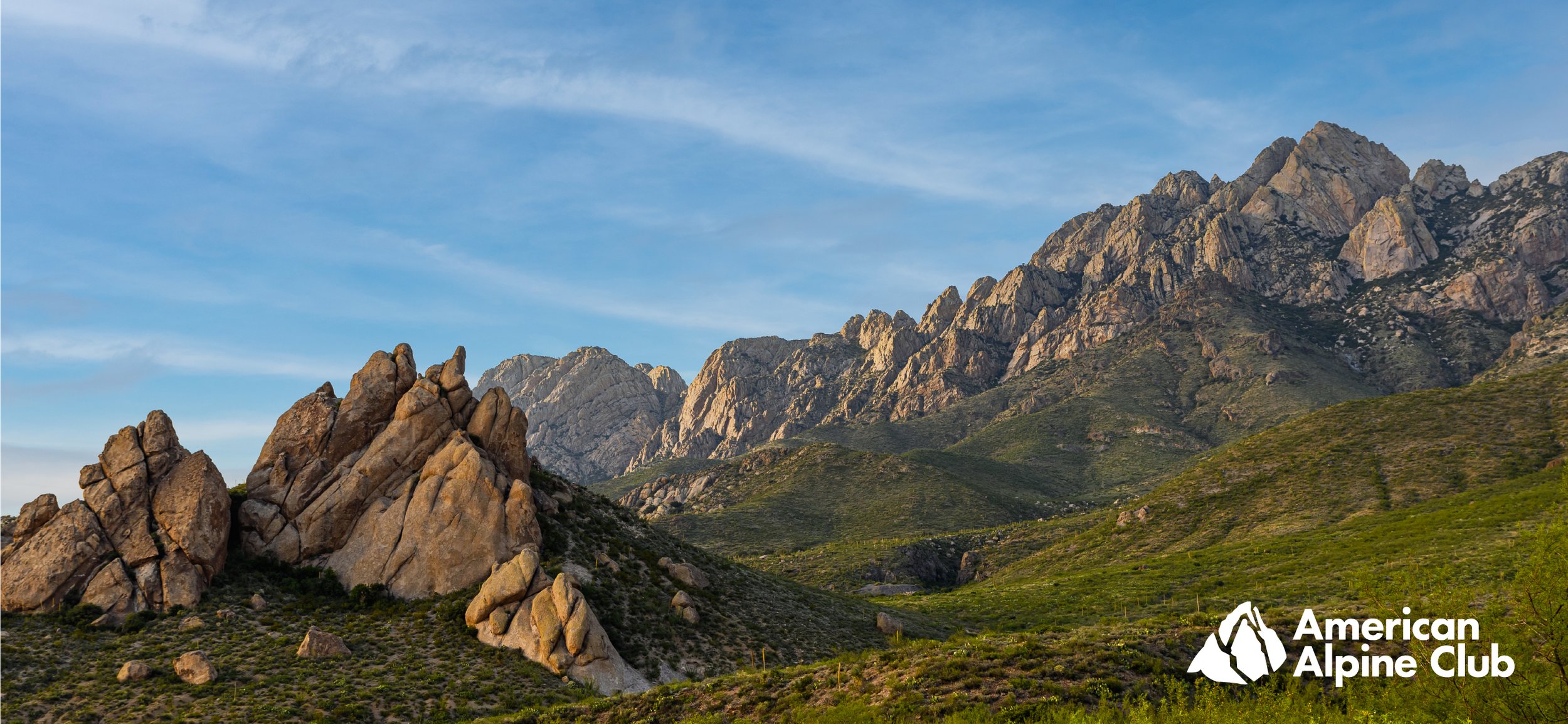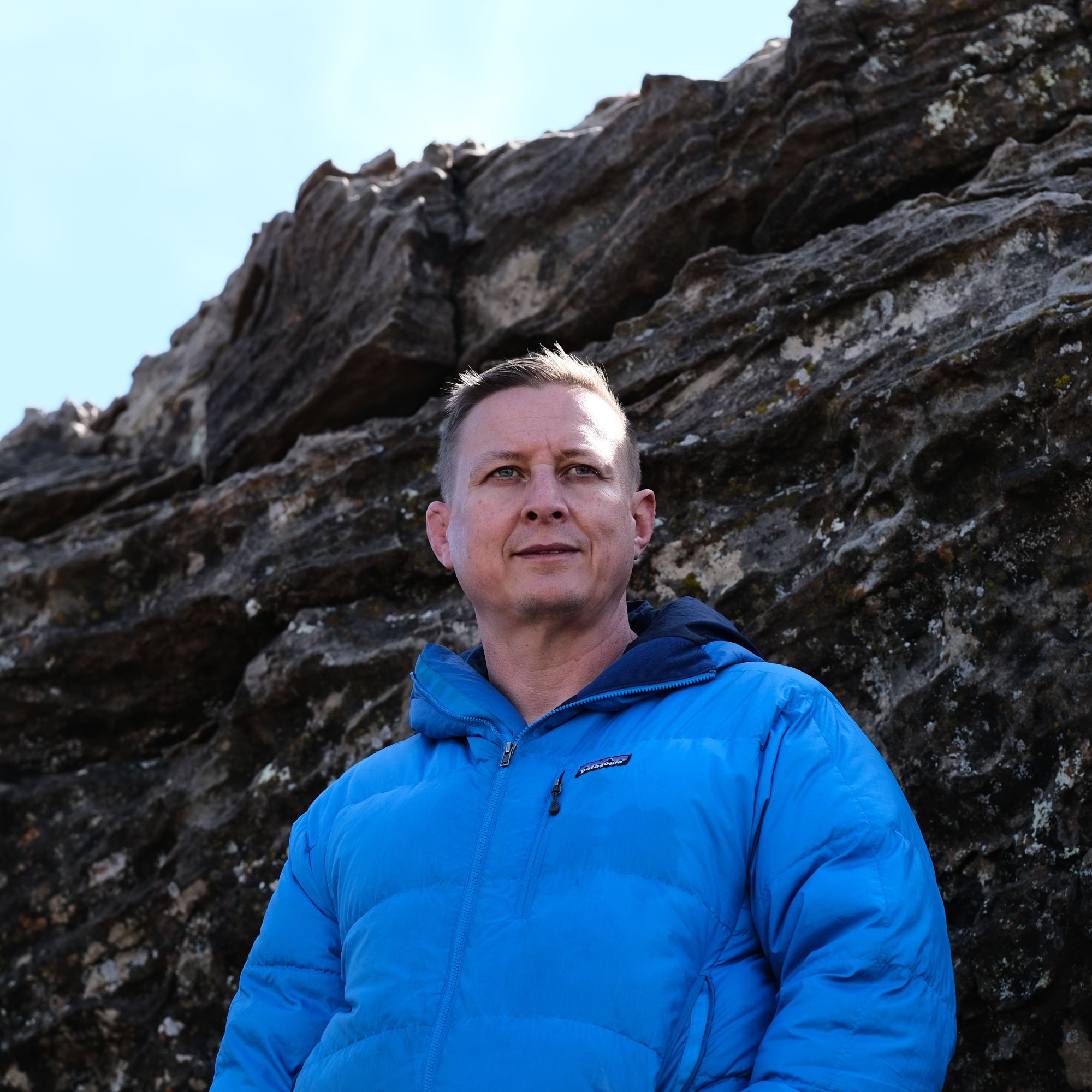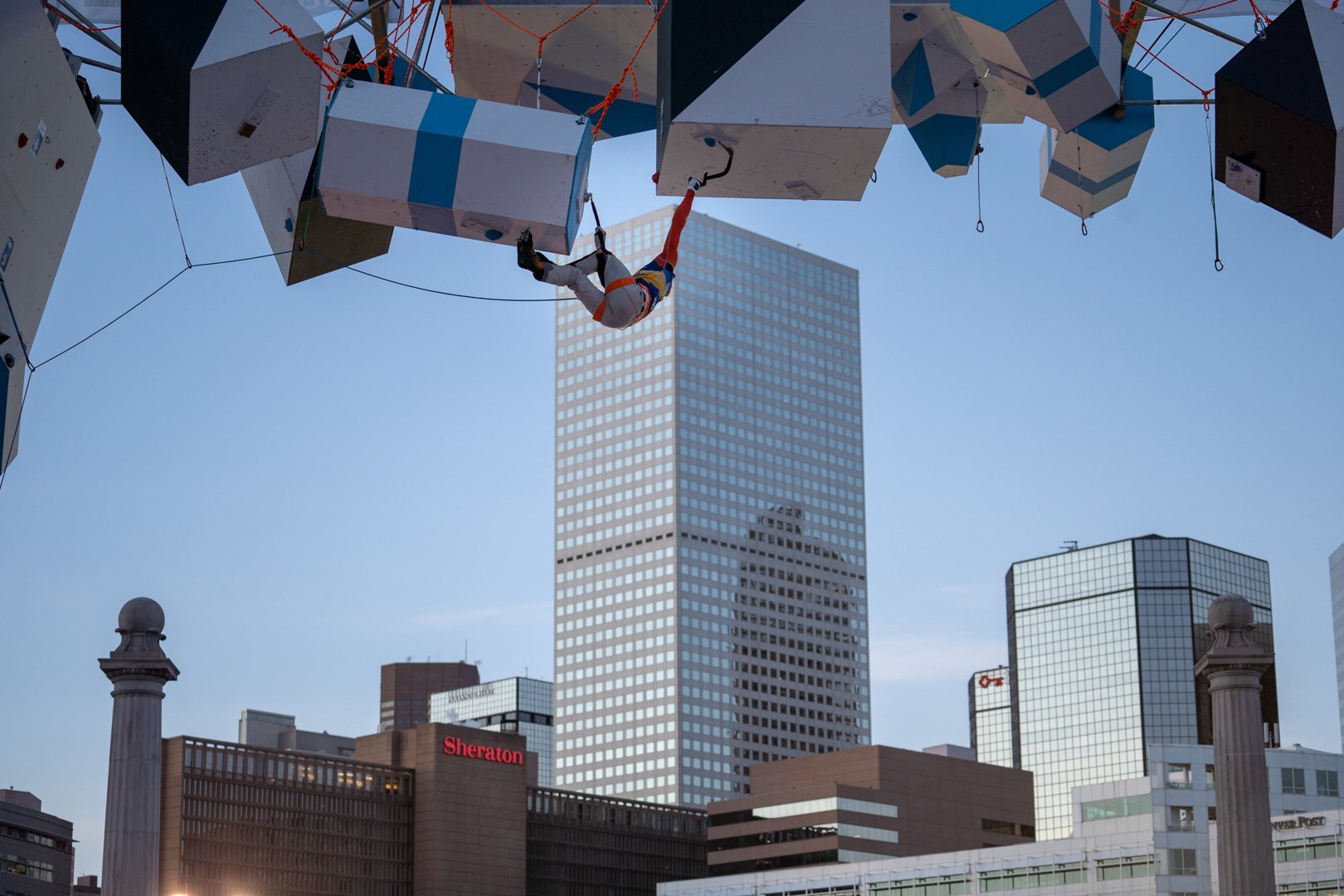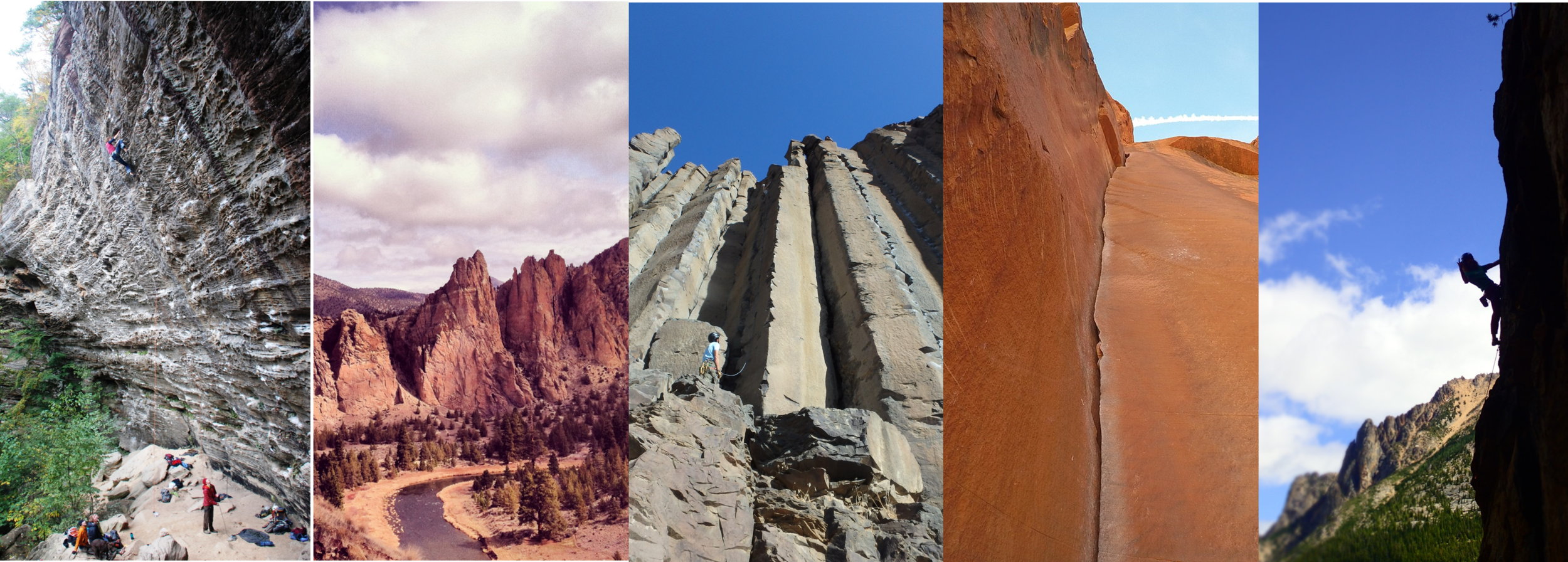Photo by AAC member Jeremiah Watt
What follows is the AAC’s Strategic Plan leading up to the organization’s 125th anniversary. Our plan is rooted in our core belief that climbing can change lives and ignite a passion and sense of meaning within its practitioners. With the power of climbing in mind, we are dedicated to facilitating this passion and supporting climbers as they seek their most fulfilling relationship with climbing.
Vision
A community of thriving climbers.
Mission
Provide climbers with resources that advance knowledge, inspiration, and advocacy.
Values
• Adventure
• Inspiration
• Curiosity
• Inclusion
• Commitment
Photo by AAC member Kylie Fly
Pillars
Empower Members
The AAC is committed to providing the tools, resources, and support necessary for climbers to thrive and excel in their pursuits. At each opportunity that we engage with our members, we’ll create a culture of empowerment for climbers of all backgrounds and skill levels to live their dreams.
Inspire Through Storytelling
The AAC has a powerful history of inspiring and uniting climbers through storytelling. We
will deepen our investment in these stories that evoke emotions, spark curiosity, and fuel imagination, encouraging climbers to pursue dreams, push limits, and connect with the natural world.
Advocate for Our Members and the Places We Climb
The AAC is committed to conserving climbing areas, mitigating impacts on nature, and advocating for members’ rights. Through advocacy, policy, and partnerships, we will continue to activate our members to protect the places they climb.
Photo by AAC member Calder Davey
Strategic Priorities
Enhance Member Experience
We prioritize personalized interactions and know that top-tier benefits are key to enhancing member satisfaction and loyalty. We will go beyond transactions, striving to build lasting connections by addressing members’ holistic needs.
Prioritize Collaboration and Partnerships
The AAC recognizes the power of collective action in protecting climbers and their cherished climbing destinations and will focus on seeking collaborative partnerships and promoting cross-sector collaboration.
Focus on Organizational Sustainability
We will align our efforts with key strategies that drive growth, ensure stability, and foster sustainability. Our focus areas include: developing skilled and engaged staff, ensuring long-term financial stability, modernizing infrastructure, enhancing risk management and compliance, and increasing environmental sustainability.
Increase Brand Clarity and Visibility
The AAC will sharpen its brand and expand its national reach to stand out within the outdoor community. This effort aims to increase AAC’s visibility and connect better with climbers nationwide.





